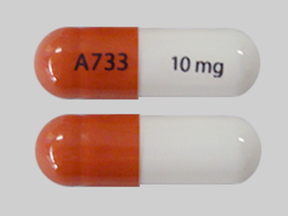Lomitapide Disease Interactions
There are 5 disease interactions with lomitapide.
Lomitapide (applies to lomitapide) liver impairment
Major Potential Hazard, Moderate plausibility. Applicable conditions: Liver Disease
The use of lomitapide is contraindicated in patients with moderate or severe hepatic impairment (Child-Pugh B or C), and patients with active liver disease, including unexplained elevations of serum transaminases. Lomitapide increases hepatic fat, with or without concomitant increases in transaminases. Hepatic steatosis associated with the use of lomitapide may be a risk factor for progressive liver disease including steatohepatitis and cirrhosis. Patients with mild liver impairment should not exceed 40 mg daily as exposure can increase up to 50% compared with healthy volunteers.
Lomitapide (applies to lomitapide) alcohol
Moderate Potential Hazard, Moderate plausibility. Applicable conditions: Alcoholism
Alcohol may increase the levels of hepatic fat and induce or exacerbate liver injury. It is recommended that patients taking lomitapide should not consume more than one alcoholic drink per day.
Lomitapide (applies to lomitapide) galactosemia
Moderate Potential Hazard, Moderate plausibility.
Patients with rare, hereditary problems of galactose intolerance, the Lapp lactase deficiency, or glucose-galactose malabsorption should avoid lomitapide as this may result in diarrhea or malabsorption.
Lomitapide (applies to lomitapide) renal impairment
Moderate Potential Hazard, Moderate plausibility. Applicable conditions: Renal Dysfunction
Patients with end-stage renal disease receiving dialysis should not exceed 40 mg daily of lomitapide, as exposure can increase up to 50% compared with healthy volunteers. Effects of mild, moderate, and severe renal impairment, including end-stage renal disease not yet receiving dialysis, on lomitapide exposure have not been studied. Caution is advised.
Lomitapide (applies to lomitapide) vitamin deficiency
Moderate Potential Hazard, Moderate plausibility. Applicable conditions: Malabsorption Syndrome
Lomitapide may reduce the absorption of fat soluble nutrients. Patients on clinical trials were provided with daily dietary supplements of vitamin E, linoleic acid, alpha- linoleic acid (ALA), eicosapentaenoic acid (EPA), and docosahexaenoic acid (DHA). Patients with chronic bowel or pancreatic diseases that predispose to malabsorption may be at increased risk for deficiencies in these nutrients with the use of lomitapide. Patients receiving treatment should take daily vitamin supplements.
Switch to professional interaction data
Lomitapide drug interactions
There are 553 drug interactions with lomitapide.
Lomitapide alcohol/food interactions
There is 1 alcohol/food interaction with lomitapide.
More about lomitapide
- lomitapide consumer information
- Check interactions
- Compare alternatives
- Side effects
- Dosage information
- During pregnancy
- Drug class: miscellaneous antihyperlipidemic agents
- Breastfeeding
- En español
Related treatment guides
Drug Interaction Classification
| Highly clinically significant. Avoid combinations; the risk of the interaction outweighs the benefit. | |
| Moderately clinically significant. Usually avoid combinations; use it only under special circumstances. | |
| Minimally clinically significant. Minimize risk; assess risk and consider an alternative drug, take steps to circumvent the interaction risk and/or institute a monitoring plan. | |
| No interaction information available. |
See also:
Further information
Always consult your healthcare provider to ensure the information displayed on this page applies to your personal circumstances.


